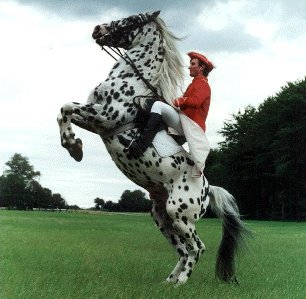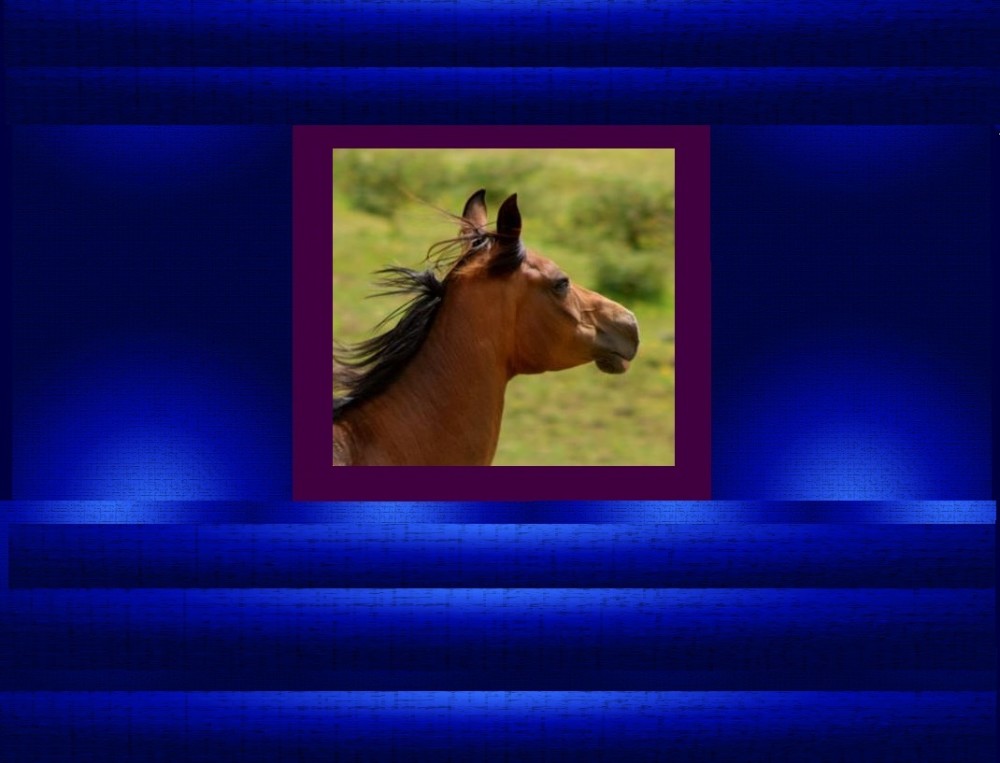Balance is a vital key to life. On every topic from vaccines to diet, it is my belief that a view that goes to an extreme is nearly always a wrong one. There are some important absolutes in life, but as a general rule I choose to avoid drastic and hysterical views.
One decision we have to make is if we prefer to err on one side of an issue or another. When it comes to the issue of the so-called well-behaved horse, I choose to err on the side of a horse that is not emotionally or physically restricted over a horse that is “well trained” or considered well behaved by most people.
A recent excellent blog post I read discussed how even “natural horsemanship” can be used in ways that are cruel to horses. Seeing the end result of a horse performing in an obedient manner does not necessarily mean the horse arrived at that obedience willingly or easily. People often see a horse performing beautifully at liberty or with expressive movements and believe this means the horse is happy.
http://goodhorsemanship.ca/great-horse-lies-we-live-by/
I believe equestrians place far too much emphasis on having a horse appear well-behaved. While it is extremely important that humans are not harmed while working with horses due to a horse’s misbehavior, there must be some room for error as a horse is learning and I can find no reason why a horse should have to be a “stepford mount” as those ultra-obedient appearing horses have been coined.
http://www.keithhunt.com/Diary125.html
People often perceive tricks that horses perform as training. In my mind, training covers a broader spectrum. While I used to write out lists of what I felt a horse I trained needed to be able to accomplish to be considered “finished,” I now have a different perspective. A horse is trained and well trained when that horse can perform on a daily basis what his owner or handler needs him to do. It used to be that I believed people who simply went for trail rides did not have fully trained horses, while people who had horses that could for instance, do the piaffe or go through a reining pattern perfectly were fully trained or finished.
Consider the following horse: Each morning, the horse stands patiently in his stall waiting for morning feed. When the feed comes, the horse eats it, then stands quietly while a handler places a halter on. The stall door is opened, the horse steps out without rushing. The horse walks outside near the handler on a loose lead without stepping on the handler, biting or kicking. The horse is released in the field and stands while waiting for the halter to be taken off before turning and walking away. This horse is demonstrating that he is well trained and “finished” at basic handling.

Here’s where my opinion differs from the “stepford mount” mentality. It is my belief that the horse that does the piaffe or sidepasses quickly or turns on the haunches is no more well trained than the horse that performs his casual trail riding to perfection. The casual trail horse may not know how to do a sliding stop, but he may respond to light shifts of the rider’s seat with immediate changes of direction while trotting on the trail, and he might do flying lead changes at the slightest signal while cantering up a curving trail. I feel that any horse that has learned to perform the tasks his owner/rider/handler asks of him on a daily basis well is a finished and well trained horse. Even if those tasks are not as flashy as the tricks other horses have learned.

The person who has a “stepford mount” will insist that the horse stands absolutely still when tied. The horse must travel at some unnaturally slow gait when being ridden, and sometimes the rider will expect the horse to keep his head and neck held at a certain elevation, keep his head still and not look around at the scenery. Many horses do these things and more without apparent objection. However, it seems probable that the demands of these tasks that are quite opposite of a horse’s nature and natural state of being must be quite stressful to a horse’s mind. Just because a horse responds quietly and by internalizing the stress, it doesn’t mean the horse is any less affected.
Is it good for a horse to be a robot?
That’s where having a square type horse can teach a person many things. The horses that object to being treated like a machine or being expected to behave like a robot are often seen as untrained or unfinished, when in reality they may be quite well trained and can perform their daily tasks to perfection. It may be that while it could be perceived that the horse had been allowed to misbehave or “get away with things,” the horse was instead trained within a framework that took into consideration what things would be too stressful for the horse to perform.
Instead of insisting that certain “tricks” are done, perhaps it is far better for a horse to be praised for excelling in areas of natural ability and allowed to have some room for natural behaviors. Perhaps a horse that shows behaviors such as looking around for danger and moving around when tied, or moving into a handler’s space on occasion is actually less stressed than the horse exhibiting the stepford mount attitude. Perhaps the handler is being kinder to the horse by not insisting that he controls the horse in 42 different ways and instead allows the horse freedom in areas the handler is not particularly concerned with.

I’ve found that most horses, when given freedom to be themselves do not abuse their power. They are amiable creatures and in general try very hard to work with us. A horse that moves his feet around and shows a less than sleepy attitude when tied is not likely to escalate and become a tyrant because his every action was not controlled. A horse that never learns to do a haunch turn is not less intelligent or valuable than one that practices haunch turns regularly. My advice is to get out and use your horses. It is the easiest way to train; simply get the horse out and do whatever it is you want to do. Eventually they will learn to do these tasks very well, and there is no need to worry about what tasks other people value for their horses. If you don’t feel the need for your horse to stand still for two minutes after you mount up, don’t worry about it. Should your horse find a new home someday, it will be easy enough for another rider to teach your horse this skill if they wish. So many riders spend more time thinking about what other people want their horses to do than they do thinking about what is actually useful for themselves and their personal horse and riding situation.

It could be that you have thought your horse needed more training or special training, when in reality your horse is already doing everything that you need him to do.

